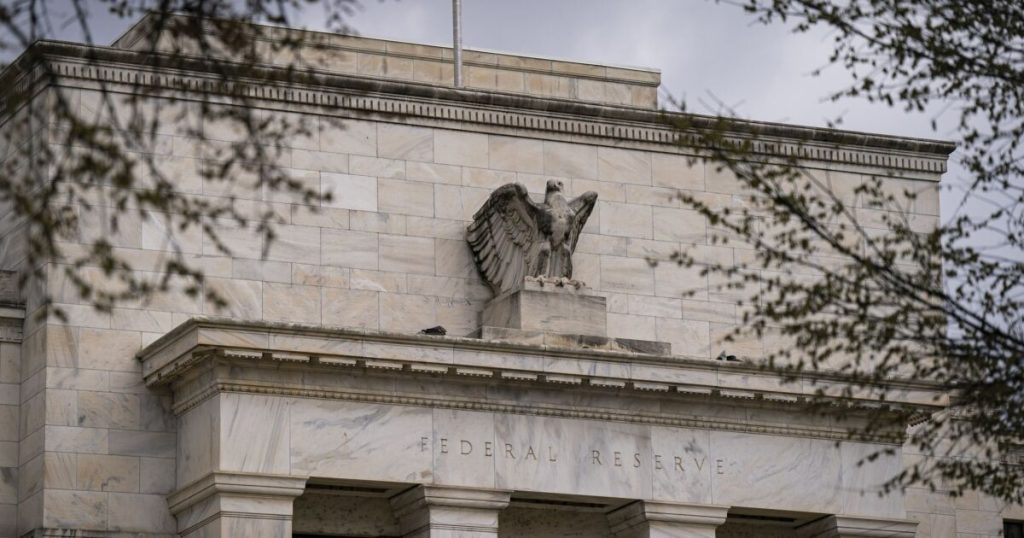Bankers are nearly evenly divided on the wisdom of consolidating federal banking agencies, but the vast majority support agency independence, according to a survey of senior officers at community banks conducted by fintech firm IntraFi.
The firm, which operates a reciprocal deposit system ensuring FDIC coverage for deposits exceeding the $250,000 deposit insurance limit, conducted its Bank Executive Business Outlook Survey online over two weeks in January. The survey was emailed to CEOs, presidents, chief financial officers and chief operating officers. Leaders from 465 unique banks across the U.S. — primarily from smaller institutions — participated in the questionnaire.
Bankers remained divided on consolidating federal bank regulators, a proposal reportedly floated by Trump’s team following his reelection. Trump’s team has been eager to shrink the government and cut redundancies, including potentially merging agencies or dissolving the FDIC.
Intrafi’s survey found bankers nearly evenly split, with 52% favoring a merger of regulatory bodies and 48% opposing changes to the U.S. system, which divides oversight among the Federal Reserve, Office of the Comptroller of the Currency, and Federal Deposit Insurance Corp. Ideas for consolidating bank regulatory agencies
Among supporters of consolidation, 81% cite excessive regulatory burden from multiple agencies and exams as their reason for favoring consolidation.
Opponents of consolidation surveyed argued a number of consolidation could weaken oversight — 47% say the current system keeps regulators in check, while 25% distrust Congress to implement reforms effectively, saying regulation could be heightened if agencies are restructured. Another 7% echoed skepticism in various write-in responses. As reporting has revealed, many smaller banks prefer the dual banking system — which currently gives banks the choice of the national charter administered by the OCC or a state charter administered by the Fed or FDIC. Smaller firms fear overturning the status quo could leave them lumped in with Wall Street giants under a single regulator.
In contrast to the differing views over consolidation, banks responded near-unanimously that banking agencies should remain nominally independent agencies. The survey found that 93% of bankers supported regulatory independence, broadly rejecting greater executive branch control.
Bankers’ apparent support for Fed independence is crucial, as lawmakers hostile to the autonomy of regulators like the Fed have suggested the president should
A majority of respondents — 58% — said they want new CFPB leadership to amend or eliminate Section 1071 of the Dodd-Frank Act, which mandates lenders to collect and report data on loans to women-owned, minority-owned, and small businesses.
The CFPB’s small-business lending rule, established under Section 1071 of the Dodd-Frank Act, requires lenders to collect and report data on small-business loan applicants, including race, ethnicity, gender, and LGBTQ status. The goal is to enhance transparency, combat discrimination, and improve access to credit for underserved businesses, similar to how the Home Mortgage Disclosure Act regulates mortgage lending.
The rule faced delays for over a decade until a 2019 lawsuit forced the CFPB to finalize it in 2023. Since then, legal challenges have mounted. Banks argue the rule is burdensome, while supporters see it as a crucial step in fair lending enforcement.
A federal judge initially upheld it, rejecting claims that the CFPB failed to consider costs. However, in February 2025, the Fifth Circuit Court of Appeals again paused enforcement after the CFPB reversed its position and declined to defend the rule.
One surprising result of the survey was that the vast majority of banker respondents see stablecoins as a threat to their deposit-taking businesses. Two-thirds, or 67% of respondents, said they worried stablecoins could encourage consumers to pull funds from banks and put them into the digital asset class, which is pegged to fiat currency and mostly used for payments.
Academic studies
A spokesperson for Intrafi said this concern from bankers was surprising, considering the issue is technical and hasn’t received much media coverage
“I think that the stablecoin number is pretty high, considering how … under-the-radar that issue is for most bankers,” he said in an interview. “Sixty-seven percent of these guys are saying, ‘Listen, we’re very worried about this,’ [and] Congress should at least be thinking about ways that it might be able to address that concern. Banks are worried about deposit competition getting higher, and most don’t think that it’s going to get easier.”
